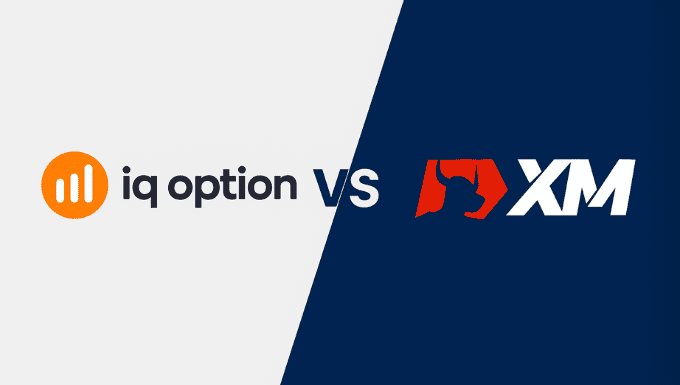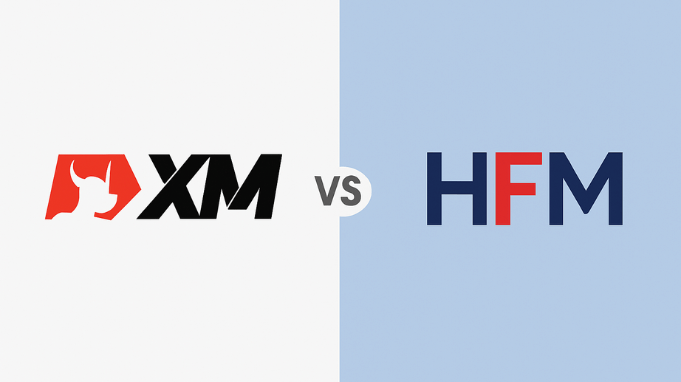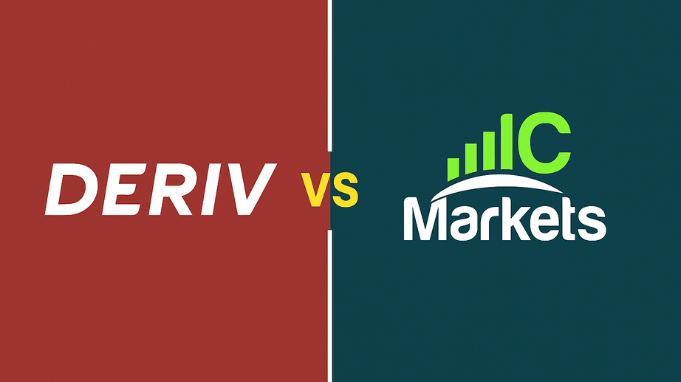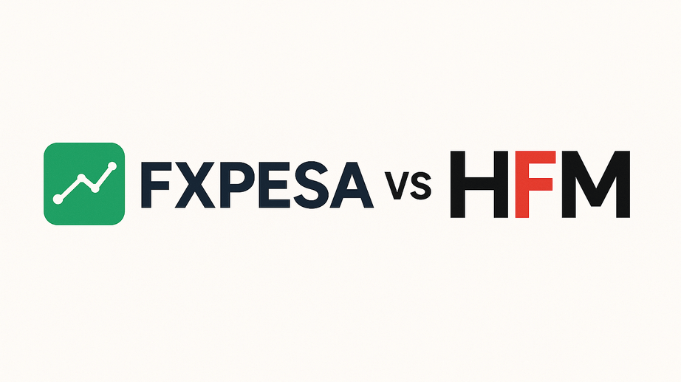Choosing the right broker is one of the biggest decisions for any trader. With so many platforms available, it can feel overwhelming. Two popular names that often come up in trader discussions are IQ Option vs XM. Both brokers are widely recognized in the trading community, but they serve traders in different ways.
In this detailed guide, we’ll compare IQ Option and XM side by side, covering everything from trading platforms and fees to regulations and mobile app performance. By the end, you’ll have all the information you need to decide which broker fits your trading style.
IQ Option vs XM: Quick Comparison Table
| Feature | IQ Option | XM |
| Features | User-friendly interface, options trading, CFD trading | Advanced trading tools, multiple platforms (MT4, MT5) |
| Fees & Spreads | Low spreads from 0.6 pips, no hidden commissions | Spreads from 0.0 pips (Ultra Low account), some commission-based accounts |
| Platform Types | Proprietary web, desktop & mobile platform | MetaTrader 4 & MetaTrader 5, WebTrader, mobile apps |
| Regulations & Security | Regulated by CySEC (Europe) | Regulated by CySEC, ASIC, IFSC, and FCA (UK) |
| Deposit & Withdrawal | Cards, e-wallets (Skrill, Neteller), crypto | Bank transfer, cards, e-wallets, local payment options |
| Minimum Deposit | $10 | $5 |
| Mobile App Rating | 4.3/5 (Google Play) | 4.4/5 (Google Play) |
| CTA | 👉 Start Trading with IQ Option | 👉 Open Account with XM |
Platform Usability & Interface: IQ Option vs XM
When comparing IQ Option vs XM, one of the first things traders notice is the difference in platforms.
- IQ Option uses a proprietary platform built from scratch. It’s clean, visually attractive, and very easy for beginners to use. The interface is smooth, with drag-and-drop chart tools, multiple timeframes, and quick order execution. It is designed to be intuitive, making it a good choice for new traders.
- XM, on the other hand, uses the MetaTrader suite (MT4 & MT5), which is an industry standard. MT4 and MT5 are packed with advanced charting tools, algorithmic trading (EAs), technical indicators, and back-testing features. While MT4/MT5 may look complicated for beginners, professional traders often prefer them for their depth and flexibility.
👉 Verdict:
- Beginners may feel more comfortable with IQ Option’s simple design.
- Advanced traders who rely on technical analysis and automation might lean toward XM.
Trading Instruments Available: IQ Option vs XM
Both brokers provide access to global financial markets, but the range of instruments differs.
- IQ Option offers:
- Forex
- Stocks & ETFs
- Commodities
- Cryptocurrencies
- Options (digital options & binary options, depending on regulation)
- XM offers:
- Forex (more than 55 currency pairs)
- Stocks CFDs from multiple exchanges
- Indices CFDs
- Commodities CFDs
- Metals & Energy
- Cryptocurrencies (in some regions)
👉 Verdict:
- If you’re interested in options trading, IQ Option is one of the few brokers that still provides it.
- For broader market coverage and professional CFD trading, XM has more variety.
Account Types & Minimum Deposit
- IQ Option:
- Only one standard account with a $10 minimum deposit.
- Simple structure: no need to choose between multiple account types.
- Offers a free demo account.
- XM:
- Four main account types: Micro, Standard, Ultra Low, and Shares Account.
- Minimum deposit starts from $5, which is lower than IQ Option.
- Offers swap-free Islamic accounts.
- Also provides demo accounts with unlimited virtual funds.
👉 Verdict:
- XM offers greater flexibility with account choices and a lower deposit threshold.
- IQ Option’s simplicity can be appealing for new traders who don’t want to deal with multiple account types.
Fees, Spreads, and Commissions
This is one of the most critical areas in comparing IQ Option vs XM.
- IQ Option:
- Spreads from 0.6 pips on forex.
- No commissions on most instruments.
- Overnight fees (swap rates) apply.
- Option trades have fixed payouts.
- XM:
- Spreads from 0.0 pips on Ultra Low accounts.
- Some accounts charge commissions (e.g., $3.5 per lot).
- No hidden fees for deposits/withdrawals.
- Swap-free accounts available for Islamic traders.
👉 Verdict:
- XM provides tighter spreads and professional pricing models.
- IQ Option is simpler and more transparent, but spreads are slightly higher.
Regulations & Security
Trust and safety are crucial when choosing a broker.
- IQ Option is regulated by CySEC in Cyprus, which allows it to operate in the European market. However, it does not have as many global licenses compared to other brokers.
- XM is more heavily regulated, with licenses from:
- CySEC (Cyprus)
- ASIC (Australia)
- IFSC (Belize)
- FCA (United Kingdom)
👉 Verdict:
- XM is the safer choice due to its multiple regulations and global compliance.
Deposit & Withdrawal Speed
- IQ Option:
- Deposits via cards, e-wallets, and crypto.
- Withdrawals usually processed within 24 hours.
- Minimum withdrawal: $2.
- XM:
- Wide range of funding methods: cards, bank transfers, e-wallets, and local options.
- Withdrawals also processed within 24 hours.
- No withdrawal fees.
👉 Verdict:
Both brokers are fast and reliable, but XM offers more local deposit methods depending on the trader’s region.
Customer Support Quality
- IQ Option:
- 24/7 support via live chat, email, and phone.
- Multilingual assistance.
- Knowledge base with FAQs and tutorials.
- XM:
- 24/5 multilingual support.
- Personal account managers for some traders.
- Educational webinars and seminars.
👉 Verdict:
IQ Option wins on availability (24/7), while XM provides stronger education resources.
Mobile App Performance
Mobile trading is essential in today’s fast-paced market.
- IQ Option:
- Proprietary mobile app for Android & iOS.
- Clean interface with trading charts, indicators, and push notifications.
- Rating: 4.3/5 (Google Play).
- XM:
- MT4/MT5 mobile apps.
- Advanced order types, charting tools, and integration with desktop accounts.
- Rating: 4.4/5 (Google Play).
👉 Verdict:
Both apps are excellent, but XM’s mobile platform offers deeper features for advanced traders.
Pros & Cons of IQ Option
Pros:
- Simple, beginner-friendly platform
- Options trading available
- Low minimum deposit ($10)
- 24/7 customer support
Cons:
- Limited regulations
- Higher spreads than XM
- Fewer account types
Pros & Cons of XM
Pros:
- Heavily regulated worldwide
- Ultra Low accounts with 0.0 pip spreads
- Variety of account types
- Rich educational content
Cons:
- Platforms (MT4/MT5) can be intimidating for beginners
- Customer support not 24/7
- Crypto availability varies by region
FAQ: IQ Option vs XM
1. Is IQ Option better than XM?
It depends. IQ Option is simpler and better for beginners, while XM is more professional and heavily regulated.
2. Which broker is safer for beginners?
XM is safer due to stronger regulation. However, IQ Option’s interface is easier for new traders.
3. What is the minimum deposit for IQ Option and XM?
IQ Option requires $10, while XM requires just $5.
4. Does XM offer binary or digital options like IQ Option?
No, XM does not offer binary or digital options. It focuses on CFDs and forex trading.
5. Which mobile app is better?
Both apps are great. IQ Option’s app is simple, while XM’s app has advanced tools for serious traders.
Conclusion: IQ Option vs XM – Which Broker Should You Choose?
When it comes to IQ Option vs XM, the right choice depends on your trading style.
- If you are a beginner who wants a simple interface and access to options trading, IQ Option is a solid choice.
- If you are a serious trader who values tight spreads, advanced tools, and strong regulation, XM is the better option.
👉 Start Trading with IQ Option Today
👉 Open Your XM Account Now
Choose the broker that fits your style and start trading today.
Vincent Nyagaka is the founder of Chweya, where he breaks down complex financial topics into simple insights. A trader since 2015, he uses his market experience to help readers better understand investing, trading, and personal finance.



